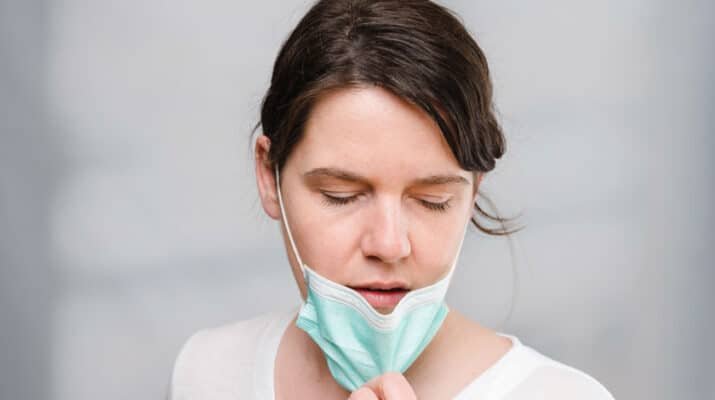By Deborah Jeanne Sergeant
If it feels like the pandemic is dragging on endlessly, you are not alone.
That feeling is ubiquitous in fact that it has been dubbed “COVID fatigue.”
Though not a clinical diagnosis, the term describes a common feeling of resulting from life changes resulting from the pandemic. Wearing masks, little or too much work, changes in schooling, fear of the virus striking, lack of socializing and entertainment, shortages of goods or services and remote everything all add up to COVID-19 fatigue.
It may seem immature to some people that the pandemic has caused stress for people not sickened by it; however, Anna Shurmantz, licensed clinical social worker and owner of Shurmantz Counseling, LCSW, PC in Cheektowaga, wants people to feel validated in their emotions about the pandemic.
“Life changed for the entire world on a dime,” she said. “We know that for the vast majority of people, when something changes in your life that you did not want to see changed, you go through a grieving process. People are angry. People are isolated. They miss the life they had expected to have this year.”
It won’t be the usual big holiday gathering, office party and other familiar traditions this year. It is fine to feel sad about that. Reminders of “be grateful it’s not worse” tend to minimize and dismiss real emotions sparked by the pandemic.
For those with existing mental health challenges, the restrictions caused by the pandemic add further strain. Shurmantz mentioned seasonal affective disorder as one example. Isolation, changes in routines and uncertainty can exacerbate some mental health issues.
“A lot of people are feeling socially isolated,” Shurmantz said. “Reach out to friends, family and support systems. Facetime and Zoom aren’t the same as face to face, but it’s better than nothing.”
Shurmantz also thinks getting outside can be helpful in relieving stress. Staying isolated and indoors can become wearisome.
Shawn Marie Cichowski, life coach and owner of Western New York Life Coaching in Williamsville, said that “people need to prioritize their self-care.”
That especially includes boosting the immune system through proper rest, diet and stress relief.
Thinking about what is in one’s control can help drive a healthy purpose in life.
“Have plants indoors and water them,” Cichowski said. “Fill your bird feeders. Make your bed. Have these self-care rituals. Exercise and enjoy your pets.
“Be creative. Put your energy toward something.”
Tackling home repair, organization or craft projects can bring a sense of accomplishment.
Cichowski warned against holing up and isolating, especially while skimping on self-care.
“That’s when people turn to maladaptive ways like abusing drugs and alcohol,” she said. “Find support. That’s what I encourage the most.”
Connecting with loved ones through Zoom, texting or phone calls can help fight off loneliness. Never assume that no one cares. Others feel lonesome, too.
Cichowski also encourages giving back to others in a physically safe way.
Many charities have curtailed their fundraising events and could use assistance. Consider donating items they need or helping financially, if possible.
Reaching out to therapists for help is important. Most therapists offer remote sessions. While some may not find it as helpful as in-person therapy, it can still provide much benefit.
Anyone who contemplates self -harm or harming others should seek emergency help.

